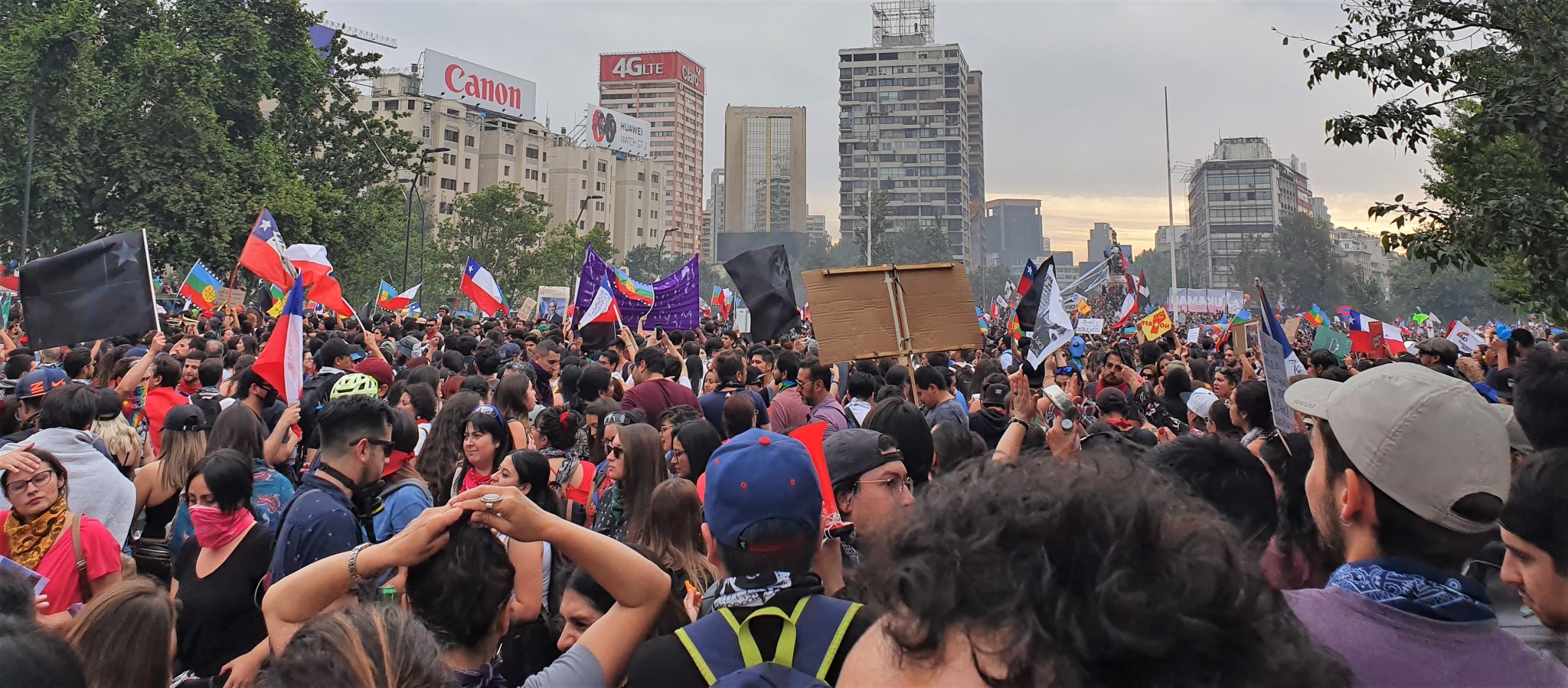
Thirty years ago, riots over price hikes resulted in over two-hundred deaths and two-thousand injuries in Venezuela. Today, thanks to populist authoritarian solutions, the country is crippled by a severe political, economic and social crisis. To help other countries avoid these kinds of outcomes, the International Republican Institute (IRI) is working with governments in Latin America to deepen democratic practices and encourage citizen participation in decision-making.
Those who have studied Latin American history know how sensitive citizens can become when someone takes away their subsidies, especially if it impacts their livelihoods. Venezuela is a textbook case. A 1989 decision to remove price controls and raise bus fares—recommended by the International Monetary Fund to deal with mounting debt and falling oil prices—touched off riots that left 276 dead and some 2,000 injured. Outrage cooled when President Carlos Andrés Pérez modified these policies, but only somewhat. The government’s clumsy response led to a coup attempt by a populist army officer who later got elected president and steered the country into dictatorship.
That officer was Hugo Chávez, who came to power by promising a restless electorate that he would clean up government. At first, he set about re-writing the constitution, emphasizing social justice and power to the people through national referendums. But he also included changes to remove the possibility of his own impeachment and transferred many parliamentary powers to the presidency. From there, Venezuela’s fall is a litany of manipulated elections, property seizures, muzzles on free speech and the rise of an incredibly corrupt single-party state.
Today, 90 percent of Venezuelans live in poverty. The national minimum wage is 23 cents a day in U.S. currency. As a result of economic collapse and attendant gasoline shortages, the working class’s treasured public transportation system is grinding to a halt in many cities across this otherwise oil-rich nation. Outside the capital, the availability of electricity and running water is sporadic to non-existent. Hospitals lack functioning equipment and medicines. And Venezuela has become one of the most violent countries on earth—and one where army generals traffic drugs. Not surprisingly, some 4.5 million citizens have fled in the last two years.
Last month, history seemed to be repeating itself in neighboring Ecuador and Chile. On October 3, Ecuador’s President Lenín Moreno decided to forego a tax hike and decreed the end of long-standing fuel subsidies to meet International Monetary Fund debt targets. This sparked violent confrontations that temporarily drove him and his cabinet out of the capital of Quito. Transportation workers, indigenous groups and supporters of his leftist predecessor Rafael Correa barricaded streets, set fires and even managed to seize oil fields. The crisis only eased after Moreno promised to reinstate the subsidies and negotiate solutions with protest leaders.
Similar events in Chile haven’t turned out as well. On October 6, a subway fare hike of just 4 cents (USD) took affect. In response, students started jumping turnstiles to avoid paying. By October 18, fare evasions turned into massive demonstrations involving teachers and trade unions. To date, riots, arson and looting have claimed at least 17 dead and left hundreds injured. There have been more than 7,000 arrests and business losses of up to $1.4 billion. Considering Chile’s status as a high-income country with a median net annual income of about USD $17,000, such a reaction defies explanation. However, those figures mask pronounced disparities in wealth distribution as well as a host of complaints from Chile’s growing middle class such as the high cost of living, low wages, unaffordable housing, costly health care and student debt.
For now, the government plans to boost revenues by raising taxes on the top one percent and implementing measures to curb tax evasion. President Sebastián Piñera also rescinded the fare increase and promised to boost the minimum wage and pensions. But protesters have also demanded Piñera’s resignation and a new constitution. The latter seems more likely as Chilean lawmakers have agreed to hold a plebiscite on replacing the 1980s-era charter written during the Pinochet dictatorship. Whether this will be enough to satisfy the streets remains to be seen. In both cases, outside agitators seem to be waiting to turn discontent into support for more radical solutions. Venezuelan travelers were held at Quito’s airport carrying information about the protests and the movements of President Moreno. Chilean police identified several Cubans and Venezuelans who participated in the Santiago riots.
Both Ecuador and Chile have economies dependent on a handful of commodities. They have always been subject to boom and bust, hence the reliance on subsidies to smooth out the bumps. A better way to minimize the shocks is to diversify economic sectors and encourage resilience by making it easier for individuals to grow small and medium-size businesses. Furthermore, decisions on services that affect people locally should be decentralized to localities. Likewise, mechanisms should be created for citizens to participate in choosing their own solutions. No president ought to be messing with bus fares. Really.
IRI has recognized the developing trend in Latin America to move away from highly centralized governing models and build strength in districts and municipalities. Our programs in Central America, Panama, Colombia and Paraguay have helped improve community service delivery, boost local employment and create citizen participation mechanisms on key issues—all critical to developing trust in government. While Venezuela fell into a profound crisis going down the populist authoritarian path, better policy choices for democracies like Ecuador and Chile could help them reduce the need for subsidies and put citizens in charge of coming up with more broadly acceptable and sensible solutions.
Top